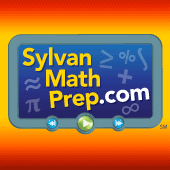Think About "Smart" Gifts This Holiday Season!
With toy store shelves overflowing and catalogs filled with the latest gadgets, the search for the perfect toys and games can be a daunting task for parents. Luckily, the holiday season comes only once a year and it provides a great opportunity for parents to give the gift of learning that will last throughout the year. Sylvan Learning Center, the leading provider of in-center and live, online tutoring at home to students of all ages and skill levels, encourages parents to make the most of toys and games to inspire their children to learn through play this holiday season.
While toys and games are fun for children, they also help kids develop valuable skills including imagination, creativity, problem solving and confidence. When selecting educational toys and games, parents are encouraged to consider gifts that are appropriate for their children’s ages and skill levels as well as their specific interests.
“Children who regularly engage in play are more likely to be emotionally, mentally and physically fit,” says Derek Strohman of the
Children are encouraged to engage in a variety of play activities to foster learning, but parents have an important role in play, too. Sylvan recommends that families make regular time for play. For example, a weekly game night teaches that playing is a part of everyone’s routine, and instills the basic rules of fair play and teamwork.
Because each child is unique, with different learning styles and academic needs, it is important to personalize the learning process. Children of all ages learn in different manners, so parents should be aware of their children’s learning needs and how it relates to play. Sylvan Learning Center offers the following suggestions to help parents identify toys that encourage active learning and make the most of play this holiday season:
Pre-School Students
Ÿ Consider puzzles to help build critical thinking and reasoning skills.
Ÿ Pre-school students are beginning to recognize colors, letters, textures and sound. To encourage these skills, look for magnetic letters and numbers, flash cards or games like See ‘n Sayâ or A to Z Puzzles™.
Ÿ To develop motor skills, try activity mats, building blocks and Tinker Toysâ. As infants become more advanced, parents should find more challenging games and activities and recognize when it’s time to retire certain toys.
Ÿ For games that help children learn to match pictures/shapes and practice counting, look for Big Deal® Slapdragon™ Card Game or Imperial™ Kids - Go Fish! Card Game.
Ÿ To spark creativity and imagination, consider arts and crafts kits and toy musical instruments. With a Kids’ Play Workshop® Itty Bitty Puppet Show™ children can have fun creating, decorating and playing with finger puppets.
Ÿ Make time for independent play to help children develop personality, foster motor skills and stimulate creativity.
Ÿ Younger children are easily overwhelmed, so parents should consider rotating toys regularly, and limiting the number of toys at playtime.
Elementary School Students
Ÿ Elementary school-aged students are beginning to understand and use strategy and probability skills. To foster these developments, look for board games and computer games, including Connect Four®, Scrabble, Monopolyâ and The Game of Lifeâ.
Ÿ Science kits, chemistry sets and telescopes help develop critical thinking skills.
Ÿ Games like Talkin’ Tango® and Petcha Didn’t Know® encourage children to pay close attention and practice listening and concentration skills.
Ÿ Parents need to recognize their child’s personal learning style, strengths and weaknesses. If children struggle with math, parents can encourage math games and activities to further develop their math skills. If science is a challenge, make science fun with a chemistry set.
Ÿ To build, boost and bolster self-esteem, play The Self-Esteem Game™.
Ÿ Consider project-based toys such as model airplanes, ships or jewelry kits to help improve fine motor skills. Not only do these projects reinforce motor skills, children also learn to follow instructions and have a project they can work on for days.
Ÿ Make playtime a regular part of a child’s routine – at school and at home. Teachers make time for playtime at recess, and parents should make sure playtime is incorporated into their child’s day.
Middle and High School Students
Ÿ Teenagers don’t like to think of it as playtime, but even older children are still learning through play as they enter their high school years.
Ÿ Science kits become more advanced for older children – and provide an opportunity for children to experiment, be creative and follow directions.
Ÿ Encourage a combination of group and individual play – team sports like a baseball or soccer team and individual activities like reading, scrap booking or journal writing.
Ÿ Help children improve vocabulary skills with board games such as Dictionary Dabble® and Buzzword®.
Ÿ At this age, students may be set in their ways, so if parents want to encourage learning through play, pay close attention to their habits and hobbies. Whether it is music, reading, or painting, match toys to your children’s interests.
For more educational resources for children in grades pre-K through 12, please visit www.sylvanfremont.com or call 1-800-31-SUCCESS.













